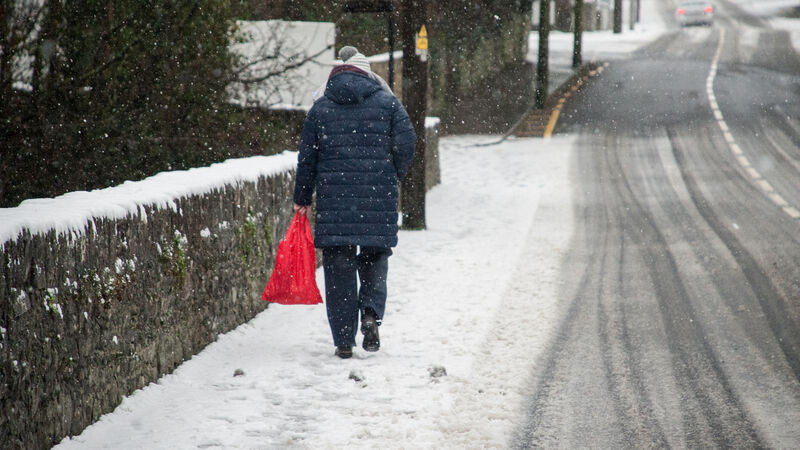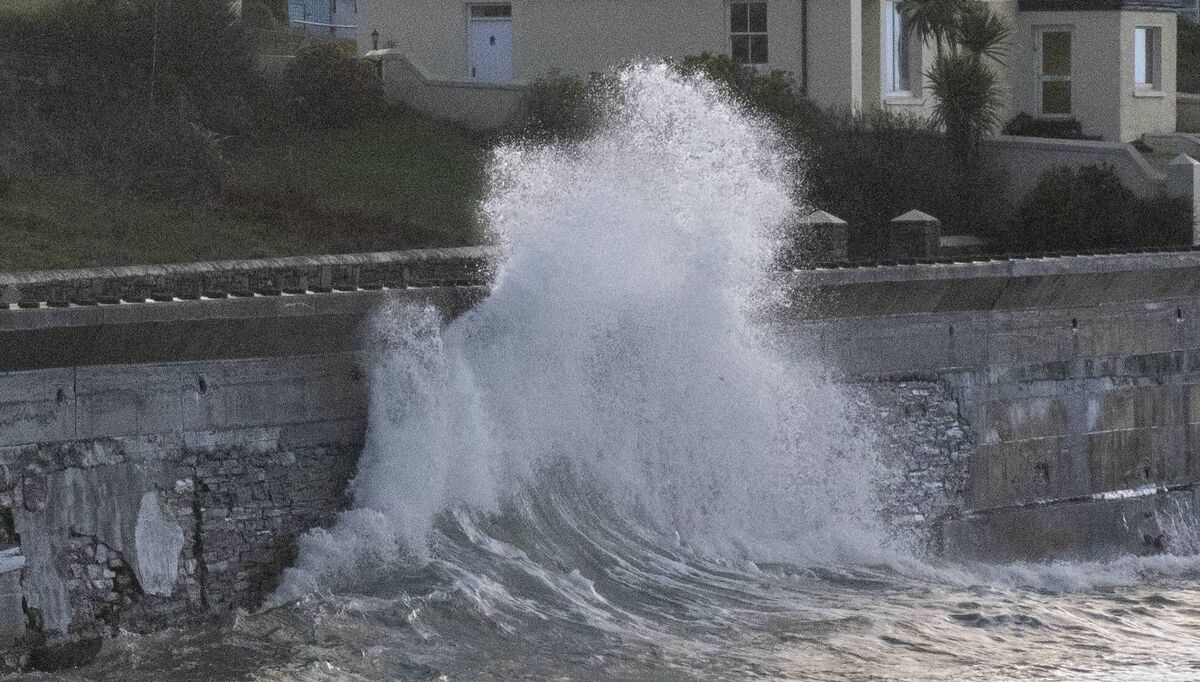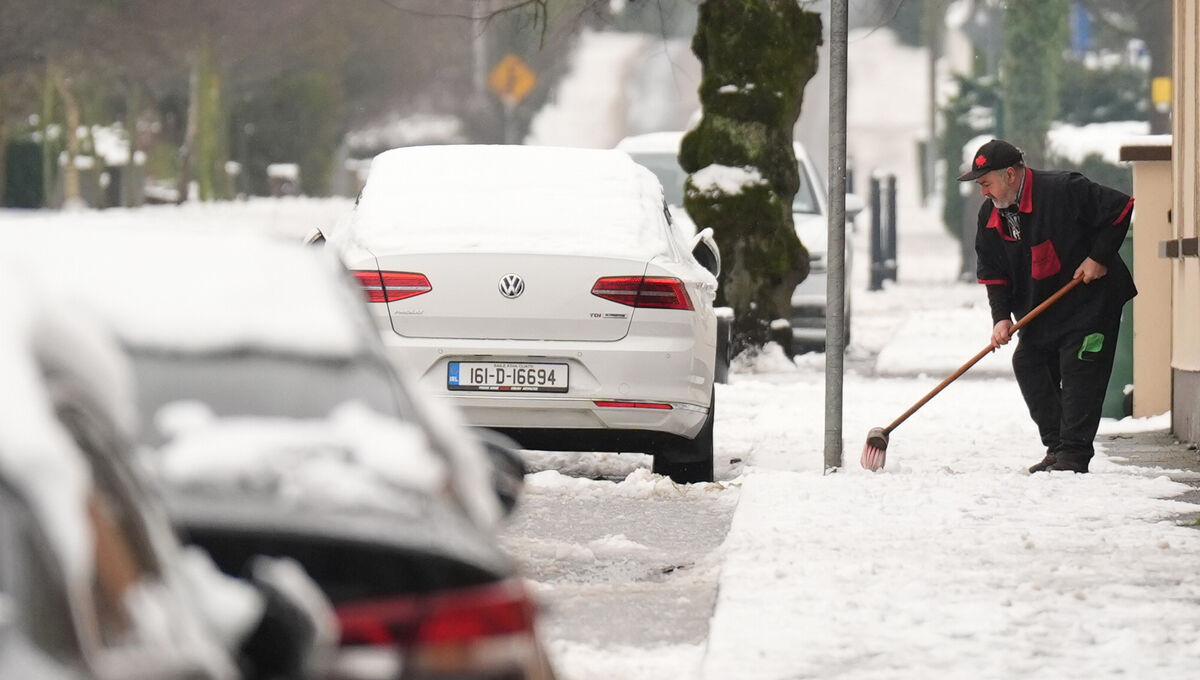Climate change must take priority in programme for Government

Catherine Conlon argues that the future of Irish climate has become increasingly uncertain with potentially huge impacts on all aspects of society and the economy. Picture: Karlis Dzjamko
The country ground is in the grip of a "multi-hazard" weather event involving snow, sleet, heavy rain, sub-zero temperatures, power outages, road closures, public transport cancellations, and school closures.
While a new Irish study from climate scientists last week predicts a lot less frost and snow between now and 2030 in Ireland, other climate scientists focus on the high probability (95%) that the Gulf Stream is in danger between 2025 and 2095 if carbon emissions are not reduced. This has the potential to push Irish winters into something akin to Iceland.
The future of Irish climate has become increasingly uncertain with potentially huge impacts on all aspects of society and the economy. Yet, policy discussions on fossil and agriculture-fuelled climate change continue to occupy a position that many in Government and society would prefer to ignore.
As TDs prepare to return from their Christmas break on January 22, all eyes will be on the programme for the next Government. Proposals on housing, health, education, defence, justice, foreign affairs, and cost-of-living will be scrutinised with a fine toothcomb.
While climate change is becoming increasingly precarious, discussions may prove challenging as neither of the main government parties had Cabinet ministers in climate and energy — a role occupied by Eamon Ryan since 2020.
The Green Party is the only party in Government over the last decade that has been brave enough to be honest about the necessity for transformation of every aspect of the economy in order to face the climate and ecological challenges we now face. For that, the party got annihilated.
The key issue here is that the public is not behind the Government in going hard on climate — as if we had a choice whether to engage or not engage with the inevitability of climate change. Many have closed their eyes and suggest that we have other more pressing matters to attend to first. Like housing. And health. And the economy.

Why does climate change matter anyway? Despite widespread awareness of the issue, many people in Ireland continue to struggle to answer this question. Some feel that climate change is too abstract to really grasp. Many think "it doesn’t really affect me" and isn’t something Ireland needs to worry about.
Others see it as one concern among many – including homelessness, poverty, unemployment, addiction, terrorism, and war.
With so many competing concerns, it is easy to put climate further down the list and assume that "technology will sort it out".
Many others recognise the problem but feel overwhelmed with the enormity of it, convinced that is too big an issue and that any action they take — such as eating less meat or flying less often — will have an impact so miniscule that it is not worth even trying.
Climate change is not an esoteric notion — it matters for very practical reasons. For some, it means navigating roads subject to more frequent flooding.
For others, it means immediate threats to livelihood, health and wellbeing, with impacts on food production, water supplies and housing security. If allowed to continue unabated, it will have potentially catastrophic consequences across the world — including Ireland — in terms of the disappearance of coastlines, stresses on agricultural and water resources, and population displacement.

In , climate scientists Robin Leichenko and Karen O’Brien outline the reality of what this will mean: "Climate change affects the functioning of economic sectors and infrastructure systems which are generally designed for stability and predictability.
"Importantly, climate change means that the past can no longer serve as a reliable guide for the future.
"In sectors such as logistics, engineering, and construction, decisions ranging from where to site new warehouse facilities and how to plan new roads, bridges, and other major infrastructure projects are complicated by uncertainties about future rainfall, flood heights, wind speeds, and sea levels.
"For the property industry, more extreme weather events and a changing climate mean increased costs and less predictability about future damage payouts — which, in turn, mean higher premium rates for customers or withdrawal of coverage altogether.
These scenarios are already playing out in Ireland, but our response has been reactive and emotional as opposed to the objective, calculated, even ruthless approach needed for long-term gain.
A new report from the Irish Centre for High-End Computing (ICHC) in the University of Galway states much more precisely than usual what climate change will mean for Ireland in the next decade. This includes increasing floods, droughts, storms, and a lot less frost and snow between now and 2030. In most cases these will be even more intense.
The study was funded by the Environmental Protection Agency, Met Éireann, and the Marine Institute. Lead author Paul Nolan is succinct in describing how likely these floods, droughts, and storms are to arise and how prepared the Government and society can be to deal with them.
The "updated high-resolution climate projections increase confidence in climate projections for Ireland which, if realised, will impact Ireland’s economy, society, and environment in dramatic ways", Mr Nolan said.
What might all this mean to the Irish economy?
For farmers, reliance on predominantly grass-grown beef and dairy farming will become increasingly challenging and expensive. Decisions on when to plant crops or when to apply fertiliser and irrigation are rooted in expectations about weather and climate.
For fishermen, a warming ocean can affect what types of fish are available, when to catch them, and how much to harvest. For manufacturers, more frequent coastal storms can damage port facilities and disrupt global supply chains.
The reality of this is playing out in Holyhead Port with all ferry services between Dublin Port and Holyhead suspended until at least the middle of January, throwing the distribution of Christmas packages into chaos.
Economic bubbles, financial downturns, civil unrest, adversity, a pandemic, war, and climate and ecosystem collapse. People are afraid, discouraged, and angry — slaves to impulses and instincts they have never questioned.
However, every disaster is an opportunity to move to a better place both individually and collectively. The climate crisis is no exception.
Fianna Fáil and Fine Gael can start this process with the formation of a new programme for Government that focuses on the enormous opportunities that a green and just transition presents.
This includes investing in green renewables, public transport and active travel, and a shift in focus in agriculture towards plant-based proteins with realistic supports for farmers to transition to sustainable crops that simultaneously address climate, health, and food security challenges.
Despite the pending return of Donald Trump and his likely move to step away from the Paris Agreement and reinforce short-term gains from investment in fossil fuels, there is a global and accelerating surge in green power and predominantly plant-based foods.
Ireland needs to be much bolder in taking courage to be right at the heart of it. Like it or not, that is the future.
- Catherine Conlon is a public health doctor in Cork.
CLIMATE & SUSTAINABILITY HUB





